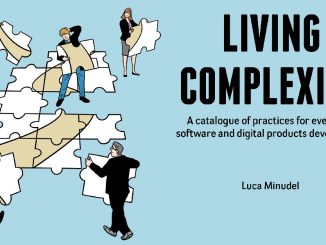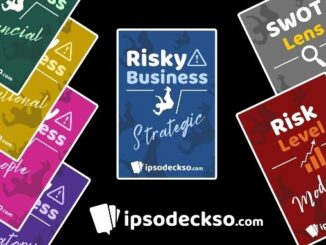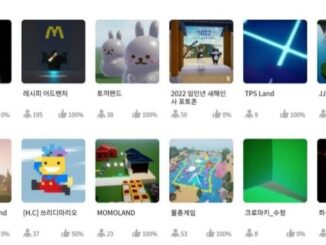
When this article was written, Neil was still completing his PhD thesis. This is now complete. It contains guidance on how to run a session of Utopoly, and can be read at 16 November 2021 Economics edition: Utopoly – Game and Utopian Research Method
You can also read more about Utopoly at his website.
“The ultimate, hidden truth of the world is that it is something we make, and could just as easily make differently” David Graeber
The world is facing catastrophes of pandemics, ecosystem collapse and climate change. The dominant economic ideology endorses individualism and greed over society and community whilst consumerism, perpetual growth and inequality are promoted with damaging consequences for the majority of people and the planet. It should be clear that a new economy is needed together with societal and cultural change. Utopoly is a method to explore and reinvigorate the radical imagination where people can re-imagine a different society where values, forms of exchange and social relations can be reconsidered and reconfigured.
A ‘hack’ of Monopoly
Utopoly started out as a ‘hack’ of Monopoly but has evolved to become much more.
Monopoly in its original form The Landlords Game (1904), was an early form of games-based learning, its inventor Elizabeth Magie intended to show how landlords accumulate wealth and impoverish society. Magie was later airbrushed out of history by the games manufacturer preferring the version adapted by Charles Darrow who claimed it as his own invention. This version is what most people know, and Monopoly has since become a cultural artefact that provides a subtle propaganda reinforcing dominant cultural norms. It celebrates some of the worst aspects of our economy and normalises activities, such as competitive property accumulation and rentier behaviour – teaching value extraction rather than value creation. In hacking Monopoly, we challenge the narrative it propagates and reprise Magie’s pedagogic function. However, Utopoly is not primarily about game-based learning (although knowledge is created through the process) but rather game-based creativity and game-based utopian-practice. Each time Utopoly is played players collectively take part in the hacking via a Future Workshop to produce utopia.
Robert Jungk developed the Future Workshop (1962) in response to concerns that cultural conditioning through education, work and consumerism meant people had become receivers of the ideology of the elites, and their natural creativity was suppressed. There was also clear democratic deficiency in public policy making. He had a fundamental belief that all people had the potential for genius, a creative imagination that he believed would be necessary to solve some of the world’s problems, and that this should be directed towards social and humane goals.
Populating the Board
Utopoly starts with a Future Workshop to collectively develop and conceptualise utopian values, ideas and desires and populate the Utopoly board. Through the process many discussions, stories and hopeful narratives of the future emerge. In the Critique phase participants are invited to question and critique a situation, the features of an economy or society that troubles them and this process opens the possibility of change. Items and concerns are written as notes, and these drive the direction of the next phases. The Fantasy phase is about responding to these critiques with imaginative solutions. It is the utopian space where the magic happens, where the creative radical imagination can play out producing fantasies of a utopian nature, unconstrained by whether they can be realized or not. The final phase is Implementation where the utopian ideas are transcribed onto the Utopoly board (with the property spaces now termed domains). The game part of the method is then ready to begin.

A feature of Utopoly is that participants can invent their own rules for the game stage. The rules that participants develop are predicated on the discussions from the Future Workshop, such that the ideas and values produced can find expression and be interpreted into the rules of play. However, understanding that playable rules are not easily formed a set of guidelines are used as a starting point. They are framed as guidelines, being optional and changeable rather than fixed rules – much like cultural norms and laws of a society. Utopoly is an encouragement to move beyond the fixed ideology of the status-quo and to anticipate cultural change. This concept of utopian-practice is not to produce a fixed flawless blue-print but recognises that the future holds possibilities and different requirements, it is a horizon that is moved towards but never reached, however in the process life is improved.
Beginning at the End
The game proceeds much like Monopoly with features that have been introduced to encourage certain behaviours and alternative economic thinking. The game begins at the normal end-point of Monopoly where a majority of domains are already controlled and players enter the game in a state of monopoly control. This monopoly is held by an oppositional entity (often a corporate or financial entity – that can be an autonomous or played by one of the participants). Their role is to act as reactionary force preventing utopian ideas from being realised by keeping and extending control of domains. The utopian players then collaborate with the aim to release their utopian ideas (domains). The oppositional entity and the utopian players make up two sides who are differentiated in several ways and one of these is their use of different currencies.

Most modern economies use a debt-based mono-currency which is a basic flaw. This causes multiple problems such as artificial scarcity and therefore competition which skews societal values towards individualism and creates an economy that only values what can be priced in the market. It creates periods of boom and bust with the resulting economic depression preventing economies from functioning effectively. Whereas having multiple currencies available at levels of sufficiency allows economies to flourish. There is also a general misconception of how money is created (i.e. it is not reliant on people depositing money in banks). Private banks can effectively create money at will by simultaneously expanding both sides of their balance sheets with assets and liabilities. They therefore effectively have a magic-money tree (also available for national banks as ‘fiat’ money). This feature is present in the game, so the oppositional figure has limitless access to credit and each time this is a used debt is also created which the utopian players must deal with. The utopian players use different currencies, these are suggested as Time, Wellbeing, Knowledge and Creativity (although players can choose others). Domains are then controlled by the placing one of each currency type on them, setting up an ecosystem of value exchange and suggestion that different economies both exist and can be possible.

Different Economic Modes
The two sides also have distinctly different modes of economic behaviour. The oppositional entity represents a financialised and fossil-fuel based market economy based on extraction, exploitation, and growth. Landing on their domains requires rent to be paid but also creates Carbon (this is indicated by blocks placed in the middle of the board). The utopian players have an alternative economic process based on regeneration, recycling, and natural abundance. This is facilitated by the concept of the commons (or another economic sphere). When they land on their domains instead of rent being charged value is created for the commons. The utopian players have a reciprocal and regenerative relationship with the commons – they access value from it and return value to it.
There is a major flaw in traditional economic theory which considers human behaviour to be selfish, individualistic, and rational (homo-economicus). This is a false conception of human qualities, and we now know that people cooperate not just for self-interest but out of genuine concern for others’ wellbeing, even beyond members of their own family. The natural and socially-constructed environments in which our ancestors evolved produced a prosocial nature that promotes positive feelings of satisfaction, pride and elation when engaged in cooperative projects. Collaboration is a common feature of human experience and in Utopoly features are included to reactivate these qualities. Firstly, the utopian players work together against the oppositional entity. Then there is a ‘wicked’ problem of complex, interwoven social, political and economic interests posed by the current status-quo resulting in catastrophic climate change and unsustainable debt (via constant growth). A limit or tipping point is set (players decide) to the amount of carbon and debt that is allowed to build up on the board – if this is reached the players lose. This provides a sense of urgency and further incentive for cooperation to ensure the utopian economy (as a stable symbiotic regenerative ecosystem) is formed.

Creating Temporary Utopias
Whilst the end point of Utopoly is to create and play an entertaining game the real purpose of to bring people together to discuss and explore their utopian thoughts, engage them in utopian practice and, in doing so educate their utopian desires – creating temporary utopians. The participants engage with and express their desires, discuss issues, and form new hopeful narratives of the future. In so doing there is a transformative aspect relating to Ernst Bloch’s autopoietic utopia, whereby engaging in the process of utopian-practice creates utopia and utopians. The games philosopher Christopher Yorke interprets the last chapter of Bernard Suits’ work The Grasshopper: Games, Life, and Utopia (2014) as a ‘utopian game design thesis’ where utopian game-play could be purposed to transform people into more fully realised utopian individuals. Suggesting such games would be played “not as a pastime, but as a means for individual (and ultimately cultural) transformation – the Suitsian formulation of ludic alchemy. The right kind of gameplay, for Suits, terraforms Earth into Utopia“ (2018, p. 11).
My thesis titled Utopoly – a utopian research method is waiting to be examined and so is not yet available for public readership (hopefully in a few months). The thesis is an account of how the method was developed and played over several iterations and now includes a condensed 2 page set of guidelines. I have just touched on some of the content of the thesis however, for further reading there are two articles which explain Utopoly in its earlier iterations:
http://publicseminar.org/2017/12/utopoly/
When this article was written, Neil was still completing his PhD thesis. This is now complete. It contains guidance on how to run a session of Utopoly, and can be read at 16 November 2021 Economics edition: Utopoly – Game and Utopian Research Method
You can also read more about Utopoly at his website.
- Utopoly – Game and Utopian Research Method - 16th November 2021





Great research
Exceptionally intriguing!